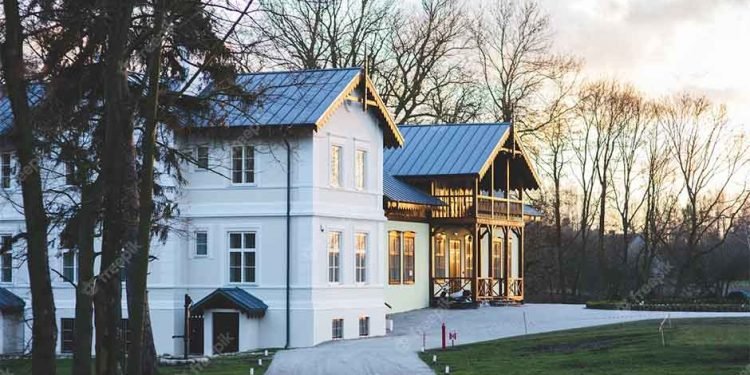Addiction recovery can be challenging and complex, requiring a safe and supportive environment. For individuals struggling with addiction, a clean and sober house can be an invaluable resource that provides the structure, stability, and guidance they need to stay on the path to recovery.
Sober living facilities Los Angeles provide a supportive environment for individuals in addiction recovery.
This article will explore the importance of clean and sober houses for addiction treatment and recovery and how they can significantly impact an individual’s recovery journey from drug addiction.
What is a Clean and Sober House?
A clean and sober house is a housing facility that provides a supportive environment for individuals in recovery from drug abuse or addiction. These full-stay sober houses are often run by a non-profit organization or a group of individuals committed to helping those in recovery. Clean and sober houses are designed to provide a safe and drug-free living space where residents can focus on their recovery goals and develop new healthy habits.
Clean and sober houses are typically peer-run, which means that residents are responsible for maintaining the house and enforcing the various house rules. This helps to create a sense of community and responsibility among residents and encourages them to develop the life skills needed to maintain long-term sobriety.
The Importance of Clean and Sober Houses for Addiction Recovery
Clean-up facilities and sober houses are essential resources for individuals seeking treatment and in addiction recovery for several reasons:
Safe and Drug-Free Environment
Clean and sober houses provide a safe and drug-free environment for individuals in recovery. These houses are drug and alcohol-free, which helps to reduce the risk of relapse and create a supportive environment for those in recovery. By removing the triggers and temptations that can lead to their substance use disorders and other substance abuse, residents are better able to focus on their recovery goals and develop the skills and tools needed to maintain long-term sobriety.
Structure and Accountability
Clean and sober houses provide a structured environment that encourages accountability and responsibility. Residents are expected to follow the house’s rules and guidelines, which helps promote a sense of discipline and self-control. This structured environment can be particularly helpful for those who struggle with impulse control and may have difficulty maintaining a routine independently.
Supportive Community
Facilities for clean and sober living in oregon can provide a supportive community that can be essential for mental health for those in recovery. By living with their families and others who are also in recovery, residents can share their experiences, provide support, and hold each other accountable. This sense of community can help combat feelings of isolation and loneliness, which can be common during recovery.
Access to Resources
Clean and sober living homes or houses often provide access to resources that can be critical for addiction recovery. This may include access to counseling, group therapy, 12-step meetings, and other resources that can help individuals in recovery develop the tools and skills needed to maintain sobriety. Providing these resources in a safe and supportive environment, clean and sober living house or houses can help individuals in recovery build a strong foundation for lasting sobriety.
Gradual Transition
Clean and sober houses can provide a gradual transition from an outpatient treatment program to independent living. The transition from treatment to independent living can be overwhelming for many individuals in recovery. Clean and sober houses provide a structured and supportive environment for outpatient treatment that can help individuals ease into independent living while still receiving the support they need to maintain sobriety.
How Clean and Sober Houses Can Make a Significant Difference in an Individual’s Recovery Journey
Clean and sober houses can significantly impact an individual’s recovery journey by providing a supportive environment that promotes accountability, responsibility, and healthy habits. Here are some ways in which clean and sober houses can make a difference in early recovery:
Peer Support
Clean and sober houses provide a supportive community of peers who are also in recovery. This sense of community emotional support can be essential for individuals who may feel isolated or alone during recovery. By living with others who understand the challenges of addiction and recovery, residents of sober housing can share their experiences, provide support, and hold each other accountable. This sense of peer support can be particularly helpful for individuals who may not have a supportive network of family or friends.
Accountability and Responsibility
Clean and sober houses promote accountability and responsibility by establishing rules and guidelines that residents are expected to follow. By adhering to these rules, residents learn the importance of being responsible for their actions and the impact they have on others. This accountability can help individuals develop the discipline and self-control needed to maintain sobriety in the long term.
Structure and Routine
Clean and sober houses provide a structured environment that encourages accountability and responsibility. Residents are expected to follow the house’s rules and guidelines, which helps promote a sense of discipline and self-control. This structured environment can be particularly helpful for those who struggle with impulse control and who may have difficulty maintaining a routine.
Affordable Housing
Clean and fully sober living houses and houses are often more affordable than other housing options. This can be particularly very helpful for individuals who are low-income and may be struggling financially as a result of their addiction. Providing affordable housing and clean and sober houses can help individuals in recovery focus on their sobriety without the added stress of financial hardship.
Skills Development
Clean and sober houses provide residents with opportunities to develop life skills that are essential for maintaining long-term sobriety. These skills may include budgeting, time management, communication, and conflict resolution. By developing these skills in a supportive environment, residents are better equipped to navigate the challenges of recovery and maintain their sobriety in the long term.

Challenges and Criticisms of Clean and Sober Houses
Despite the numerous benefits of clean and sober houses for addiction recovery, some challenges and criticisms are associated with these living environments.
Misconceptions about Clean and Sober Houses
One common criticism of clean and other sober living housing or houses is the misconception that they are “halfway houses” or “sober living homes” where individuals are allowed to continue using drugs or alcohol in a limited capacity. While it is true that some halfway houses and sober living homes may allow certain other substance use or substances in small quantities, this is not the case with clean and sober houses.
Clean and sober houses provide sober living residents with a completely drug-free environment where residents must abide by strict rules and guidelines. They are not meant to be a temporary solution for addiction recovery but rather a long-term housing option for individuals committed to maintaining their sobriety.
Challenges Faced by Residents
Another challenge residents face in clean and sober houses face is the adjustment to a highly structured living environment. While this structure can be helpful for maintaining sobriety, it can also be difficult for individuals who are used to a more independent lifestyle.
Residents must adhere to rules and guidelines, including curfews, random drug testing, and participation in recovery meetings and activities. This level of structure can feel restrictive to some individuals and may take time to adjust to.
Addressing Criticisms of Clean and Sober Houses
To address some of the criticisms of clean and sober houses, it is important to provide education and awareness about the purpose and benefits of these living environments. It is also crucial to ensure that clean and sober houses are held to a high standard of care, with regular inspections and monitoring to ensure that they are providing a safe and supportive environment and addiction treatment services for residents.
Clean and sober houses must also provide access to essential resources and support for addiction recovery, including counseling, group therapy, and 12-step meetings. By being both treatment centers and facilities providing a structured and supportive environment, clean and sober houses can help individuals in recovery build a strong foundation for lasting sobriety.
In conclusion, while challenges and criticisms are associated with clean and sober houses, these living environments can be invaluable resources for individuals in addiction recovery.
Addressing misconceptions about alcohol abuse, providing a safe and supportive environment, and offering access to essential resources and clean and sober houses can significantly impact an individual’s recovery journey.
Conclusion
Clean and sober houses are invaluable for individuals in addiction recovery and substance abuse treatment. They provide a safe and supportive environment that promotes accountability, responsibility, and healthy habits. By living with others who understand the challenges of addiction and recovery, residents of the recovery community can share their experiences, provide support, and hold each other accountable.
Clean and sober houses also provide access to resources that can be critical for addiction recovery, including counseling, group therapy, and 12-step meetings.
By using treatment services providing a structured and supportive environment, clean and sober houses can help individuals in recovery build a strong foundation for lasting sobriety.












